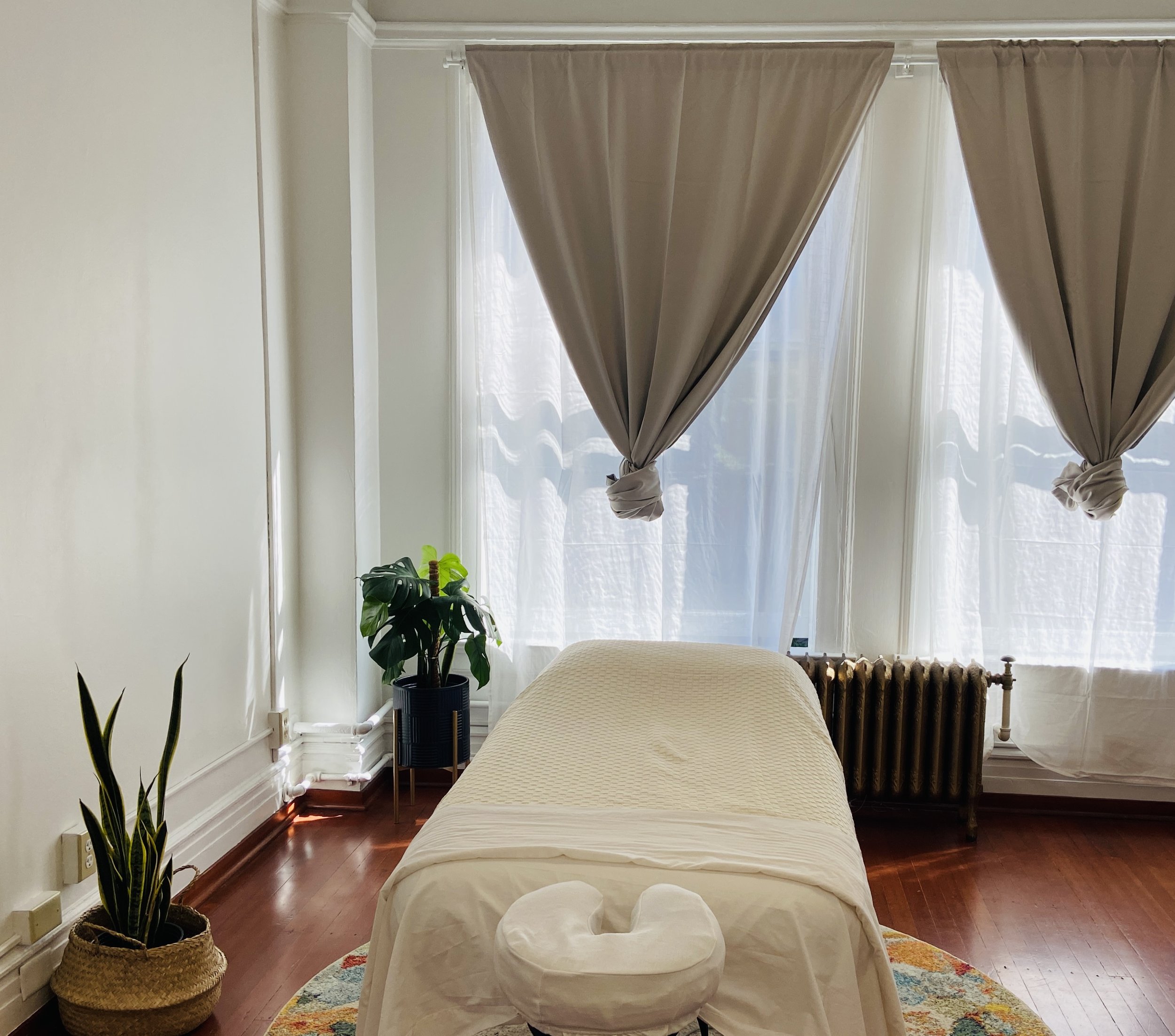
CONDITIONS TREATED
Massage therapy can prove beneficial to many conditions, including but not limited to the following:
Muscle Tension and Spasm
Multiple sclerosis (MS)
Plantar Fasciitis, Shin Splints
Post-injury and post-surgical rehabilitation
Post-Traumatic Stress Disorder (PTSD)
Pregnancy/Prenatal
Postpartum/Poatnatal
Scoliosis
Scar Tissue
Low Back Pain, Mid Back Pain, and Neck Pain.
Sports Injuries
Strains and Sprains
Stress and Stress-Related Conditions
Tendinitis
Whiplashs
Rotator Cuff Injuries
Insomnia
TMJ(Jaw) Disorder
Piriformis Syndrome. Improve Hip Mobility
Sciatica
Anxiety and Depression
Arthritis
Asthma and Emphysema
Carpal Tunnel Syndrome
Chronic Fatigue Syndrome
shoulder complaints
Post-Operation Manual Lymphatic Drainage Massage
Edema/Swelling
Fibromyalgia
Migraine and Tension Headaches
Treatments

It's important to be aware of the potential effects that can occur after a massage session. Rest assured, these reactions are often normal and indicate that your body is responding positively to the treatment.
1. Post-Massage Fatigue and Muscle Soreness:
After receiving a massage, it's common to feel relaxed, tired, or even experience muscle soreness. This is because the therapist has been working on your muscles to release tension and promote relaxation. Similar to how you might feel after an intense workout, your muscles may temporarily feel fatigued or sore.
2. Headache or Nausea:
In some cases, people may experience a headache or nausea following a massage session. This can be attributed to various factors such as dehydration, release of toxins from the body, or even the stimulation of certain pressure points during the massage. These effects are typically temporary and should subside within a few hours/days.
3. Pain vs Effectiveness:
Contrary to popular belief, a massage does not need to be painful in order to be effective. While some individuals may prefer deeper pressure during their session, it is important to communicate your comfort level with your therapist. They can adjust their techniques accordingly and customize the treatment based on your preferences.
Remember, every individual responds differently to massages, so it's essential to listen to your body and communicate any concerns or discomfort you may have with your therapist.
If you have any questions or need further guidance on post-massage care, please don't hesitate to reach out!

